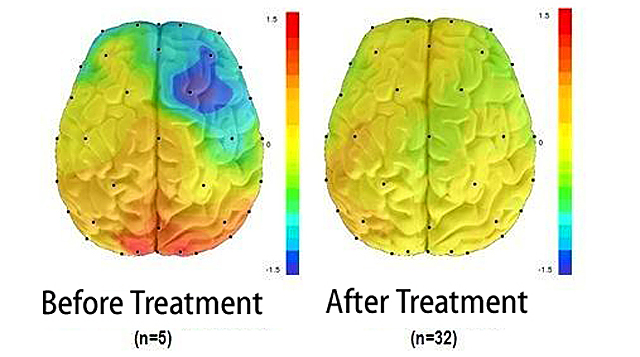Investigating The Way Sleep Ailments Interfere with Brainwave Function and Affect Mental Function
Investigating The Way Sleep Ailments Interfere with Brainwave Function and Affect Mental Function
Blog Article
Sleep is an crucial part of our daily lives, enabling our physical selves and mental faculties to rest and recover. However, many individuals experience from slumber disorders, which can significantly disrupt sleep patterns. These disorders can result to multiple issues, including changes in neural wave activity. Neural waves are electronic impulses in the brain that indicate our mental state and activity. When sleep is disturbed, the normal patterns of neural waves can be affected, resulting to problems with mental function, such as memory, attention, and judgment.
There are various types of slumber disorders, including sleeplessness, slumber apnea, and unsettled leg syndrome. Insomnia is characterized by difficulty falling or remaining asleep, while sleep apnea involves interruptions in respiration during slumber. Restless leg syndrome induces discomforting feelings in the limbs, resulting to an compelling desire to move them. Each of these disorders can disrupt the normal slumber cycle, which comprises of various stages, including light sleep, profound sleep, and REM (rapid eye movement) slumber. Each stage plays a vital role in preserving overall cognitive health and performance.
When slumber disorders disturb with these stages, neural wave activity can become erratic. For instance, during profound sleep, the brain produces slow delta waves, which are essential for physical restoration and memory consolidation. If a individual undergoes frequent awakenings or does not attain deep sleep, the generation of these delta waves is reduced. This can lead to difficulties in acquiring new knowledge and retaining memories. Additionally, REM sleep, which is linked with fantasizing and emotional processing, is also affected. Interruptions in REM sleep can lead to issues with affective regulation and creativity.
The impact of slumber disorders on cognitive function is significant. Research has demonstrated that people with sleep disorders often experience difficulties with focus and concentration. This can affect their performance at educational institutions or work, making it challenging to complete tasks or participate in discussions. Furthermore, long-term sleep deprivation can lead to emotional Website changes, heightened stress, and even anxiety or depression. These cognitive and emotional challenges can create a vicious cycle, where inadequate sleep leads to cognitive difficulties, which in turn can result to more sleep problems.
Addressing sleep disorders is essential for enhancing brainwave activity and cognitive function. Treatment options may include lifestyle changes, such as creating a consistent sleep schedule, creating a comfortable slumber environment, and engaging in relaxation techniques. In some cases, medical intervention may be necessary, such as using a CPAP machine for slumber apnea or pharmaceuticals for sleeplessness. By prioritizing sleep and seeking appropriate care, people can enhance their overall mental abilities and boost their quality of life. Understanding the connection between slumber disorders, neural wave activity, and cognitive function is an essential step toward improved health and well-being.